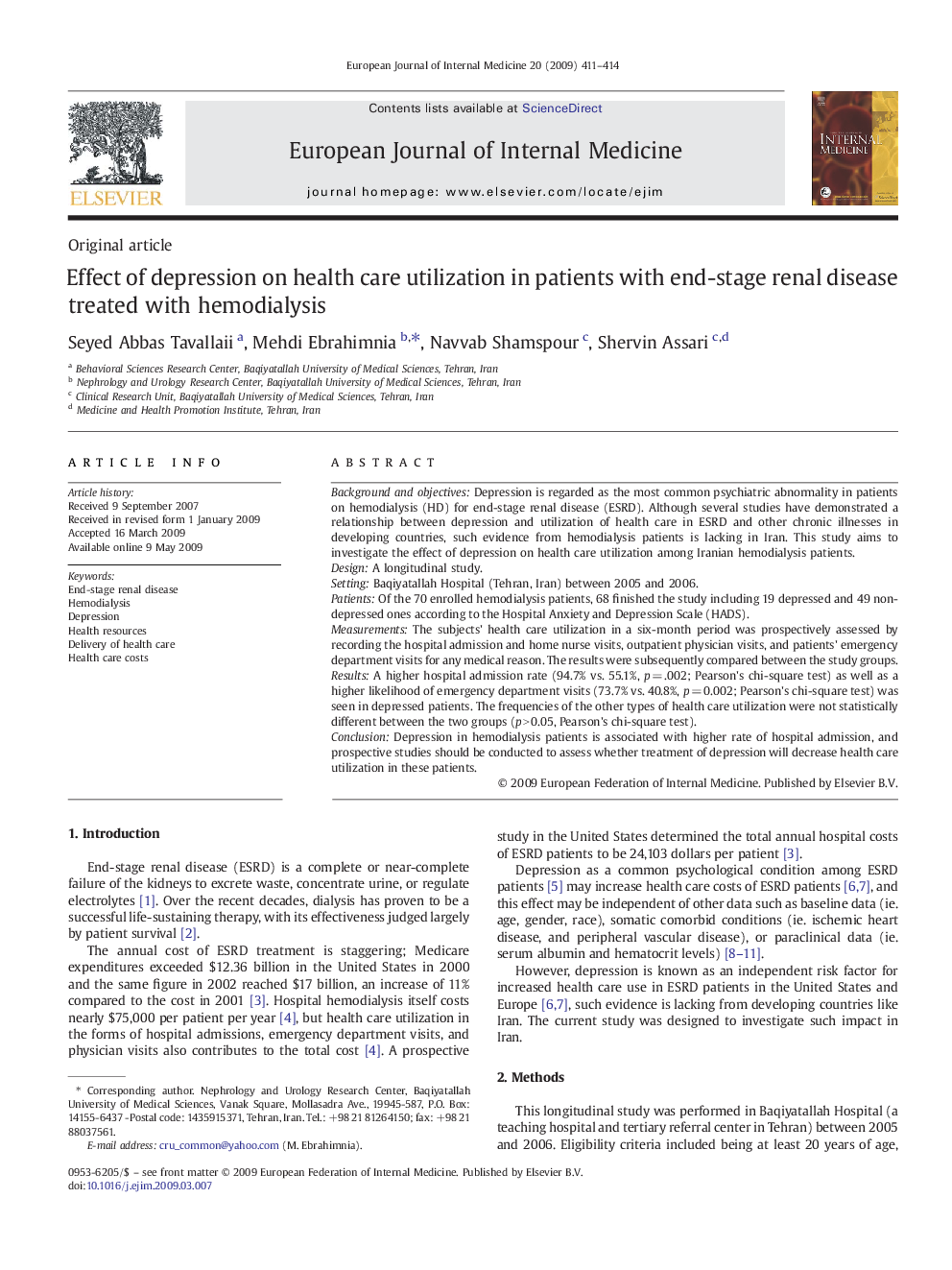| Article ID | Journal | Published Year | Pages | File Type |
|---|---|---|---|---|
| 3468399 | European Journal of Internal Medicine | 2009 | 4 Pages |
Background and objectivesDepression is regarded as the most common psychiatric abnormality in patients on hemodialysis (HD) for end-stage renal disease (ESRD). Although several studies have demonstrated a relationship between depression and utilization of health care in ESRD and other chronic illnesses in developing countries, such evidence from hemodialysis patients is lacking in Iran. This study aims to investigate the effect of depression on health care utilization among Iranian hemodialysis patients.DesignA longitudinal study.SettingBaqiyatallah Hospital (Tehran, Iran) between 2005 and 2006.PatientsOf the 70 enrolled hemodialysis patients, 68 finished the study including 19 depressed and 49 non-depressed ones according to the Hospital Anxiety and Depression Scale (HADS).MeasurementsThe subjects' health care utilization in a six-month period was prospectively assessed by recording the hospital admission and home nurse visits, outpatient physician visits, and patients' emergency department visits for any medical reason. The results were subsequently compared between the study groups.ResultsA higher hospital admission rate (94.7% vs. 55.1%, p = .002; Pearson's chi-square test) as well as a higher likelihood of emergency department visits (73.7% vs. 40.8%, p = 0.002; Pearson's chi-square test) was seen in depressed patients. The frequencies of the other types of health care utilization were not statistically different between the two groups (p > 0.05, Pearson's chi-square test).ConclusionDepression in hemodialysis patients is associated with higher rate of hospital admission, and prospective studies should be conducted to assess whether treatment of depression will decrease health care utilization in these patients.
